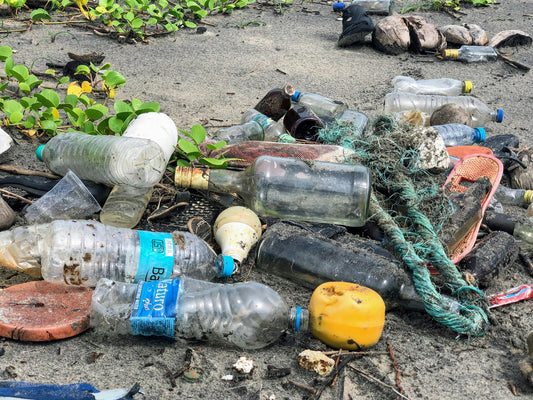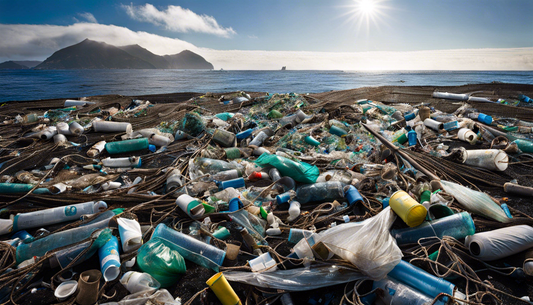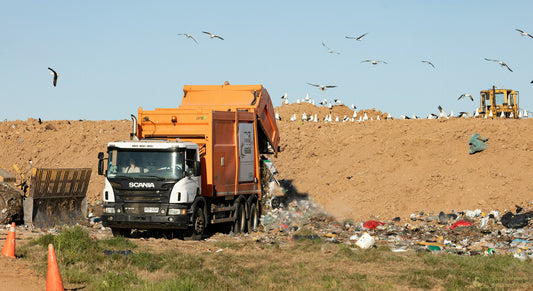Share
A Glimmer of Hope: Progress on International Plastic Treaty Talks
Discussions on global attempts to tackle plastic pollution have hit a pivotal turning point. Recent international treaty talks in Busan, South Korea saw an 'important shift' for the better, amidst hopes of a possible breakthrough following a two-year stalemate.
The Great Debate: Production Cap or No Action?
The core issue mundanely revolves around your everyday plastic - how much of it should be produced? Demands have been made for the treaty text to include a production cap, a much-needed countermeasure to the ever-increasing plastic production. Current predictions indicate an alarming tripling of plastic production by 2050, a threat not just to the environment but also to human health. The final text, forecasted to be decided this weekend, could possibly show an inclusion of either cap control or no action at all.
The Busan Talks: Seeking Progress Amidst Opposition
Conducted for the fifth time in two years under the United Nations, the treaty talks in Busan represent a crucial moment in addressing the lifecycle of plastic pollution, hinting at a global commitment to curb this menace. A group of 102 nations, driven by a desire for change, have rallied together, lead by Panama and the Pacific Small Island Developing States, vindicating the necessity of producing less plastic. Although opposed by a minor group of countries, the collective spirit is undeterred and optimistic.
The Dilemma: Vote Vs Consensus
Negotiations for the treaty have been labyrinthine due to the multiple attempts to reach a general consensus on decisions. The gridlock might have been bypassed had a majority decision been executed, however, disagreements over voting rules hamper these efforts. To kickstart the stalled progress, civil society groups held a meeting advocating for "courage not compromise", and encouraging ambitious countries to opt for procedural routes to realise their objectives.
Optimism Over Pessimism: A Hopeful Future
Despite multiple hurdles and the fraught possibility of a lengthy consensus, many are hopeful for the treaty’s success. Countries are keen to deliver a powerful message on plastic control after a disappointing year marked by weak environmental agreements. The union of international alliances offers a beacon of hope that the treaty could potentially see light by this Sunday, a step forward in protecting our planet for future generations.
Discussions on global attempts to tackle plastic pollution have hit a pivotal turning point. Recent international treaty talks in Busan, South Korea saw an 'important shift' for the better, amidst hopes of a possible breakthrough following a two-year stalemate.
The Great Debate: Production Cap or No Action?
The core issue mundanely revolves around your everyday plastic - how much of it should be produced? Demands have been made for the treaty text to include a production cap, a much-needed countermeasure to the ever-increasing plastic production. Current predictions indicate an alarming tripling of plastic production by 2050, a threat not just to the environment but also to human health. The final text, forecasted to be decided this weekend, could possibly show an inclusion of either cap control or no action at all.
The Busan Talks: Seeking Progress Amidst Opposition
Conducted for the fifth time in two years under the United Nations, the treaty talks in Busan represent a crucial moment in addressing the lifecycle of plastic pollution, hinting at a global commitment to curb this menace. A group of 102 nations, driven by a desire for change, have rallied together, lead by Panama and the Pacific Small Island Developing States, vindicating the necessity of producing less plastic. Although opposed by a minor group of countries, the collective spirit is undeterred and optimistic.
The Dilemma: Vote Vs Consensus
Negotiations for the treaty have been labyrinthine due to the multiple attempts to reach a general consensus on decisions. The gridlock might have been bypassed had a majority decision been executed, however, disagreements over voting rules hamper these efforts. To kickstart the stalled progress, civil society groups held a meeting advocating for "courage not compromise", and encouraging ambitious countries to opt for procedural routes to realise their objectives.
Optimism Over Pessimism: A Hopeful Future
Despite multiple hurdles and the fraught possibility of a lengthy consensus, many are hopeful for the treaty’s success. Countries are keen to deliver a powerful message on plastic control after a disappointing year marked by weak environmental agreements. The union of international alliances offers a beacon of hope that the treaty could potentially see light by this Sunday, a step forward in protecting our planet for future generations.
We hope you enjoyed this article. Please feel free to leave a comment below if you want to engage in the discussion.
If you want to read more like this, make sure to check out our Blog and follow us on Instagram. If you are interested in truly sustainable products, check out our Shop.
Check out the original source here.








